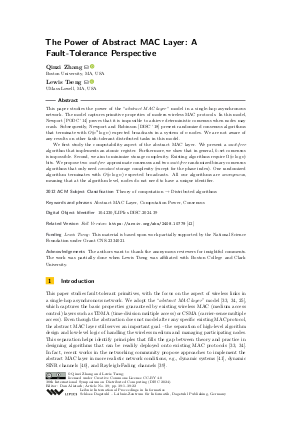LIPIcs.DISC.2024.39.pdf
- Filesize: 0.86 MB
- 22 pages

 Creative Commons Attribution 4.0 International license
Creative Commons Attribution 4.0 International license




Feedback for Dagstuhl Publishing